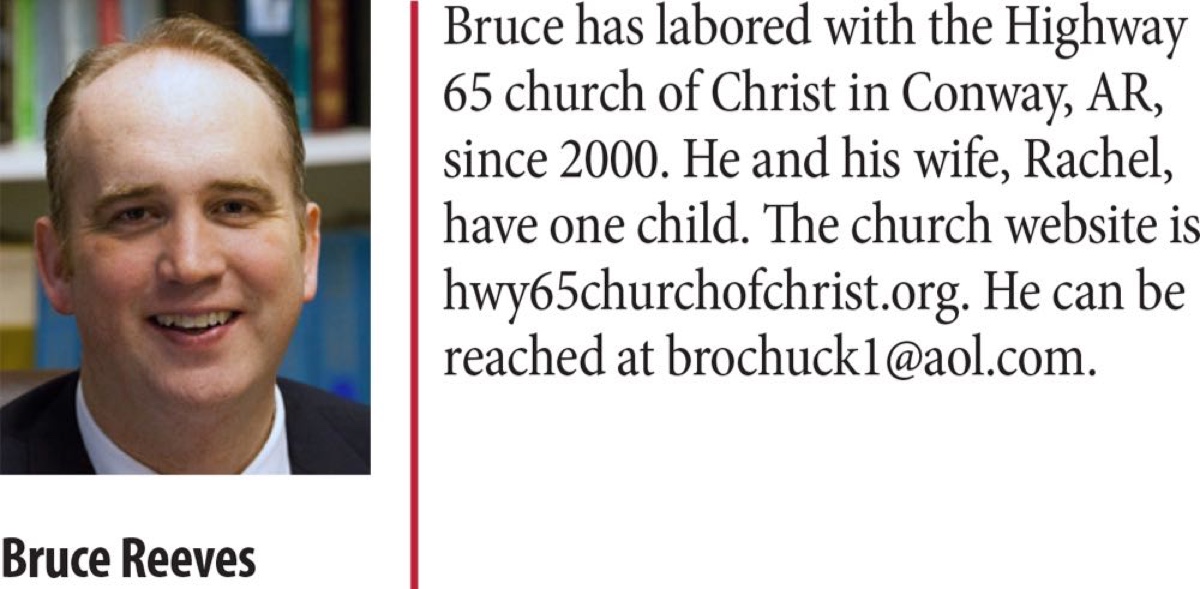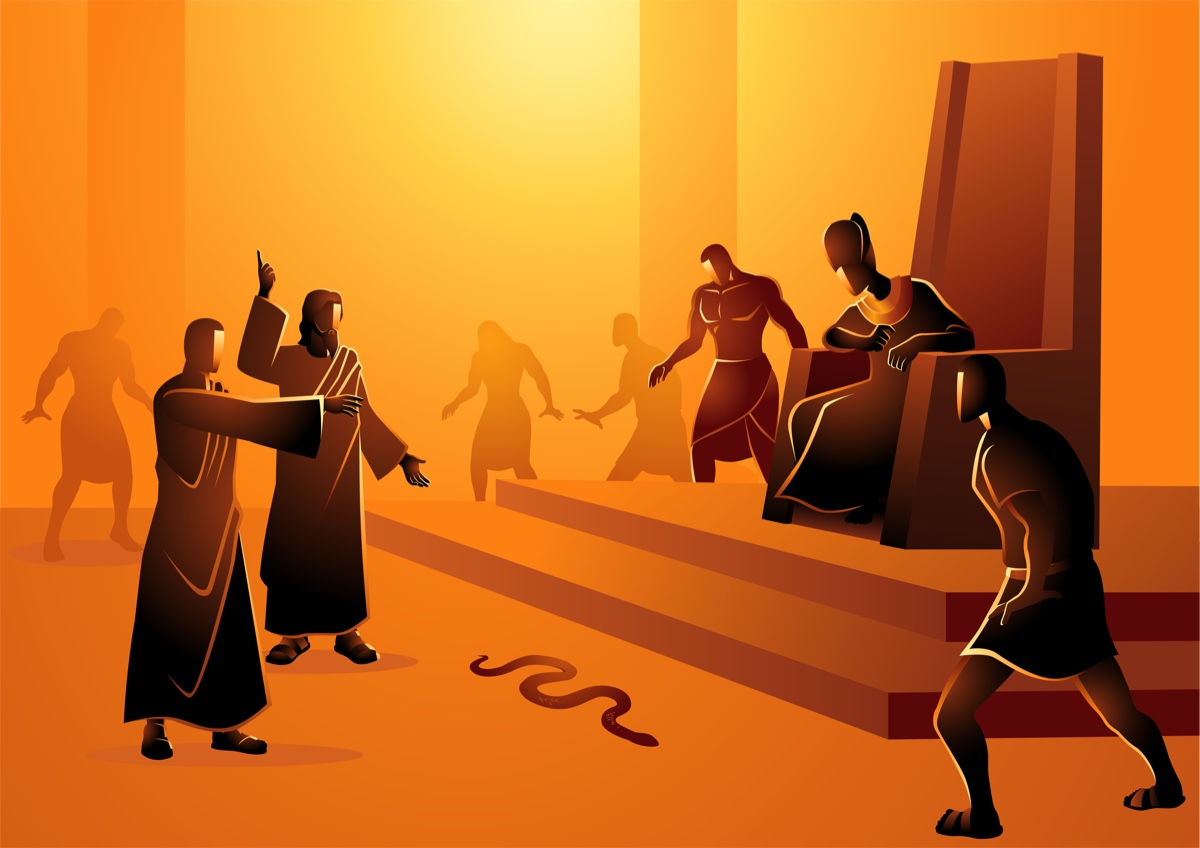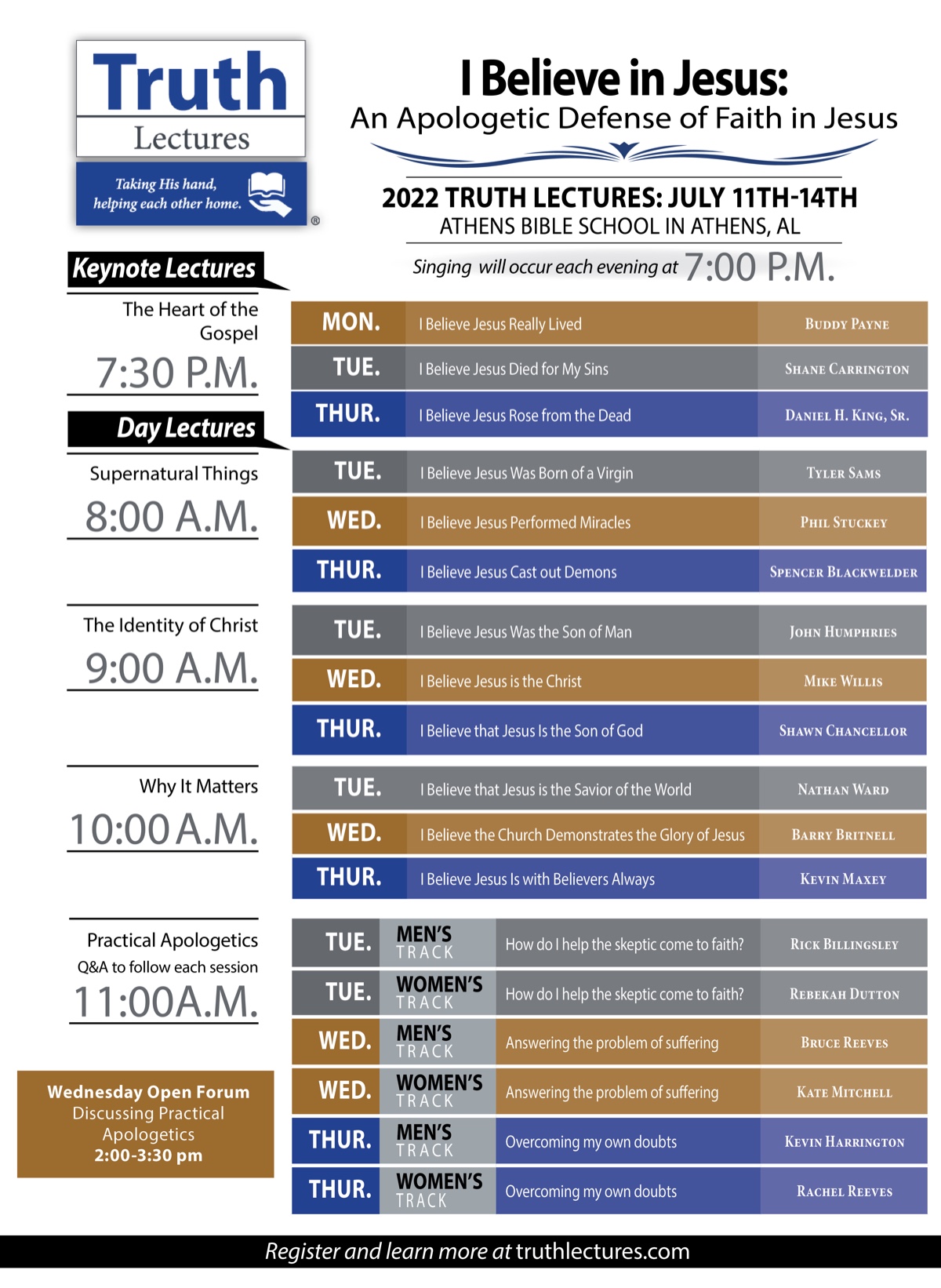By Bruce Reeves
Synopsis: The major thrust of this context is to defend God’s sovereign choice for “whoever wills” to come and take of the “water of life freely” (Rev. 22:17).
We must be committed to understanding what the Scripture is teaching in its context, rather than merely proof-texting the Bible to justify our preconceived notions. Years ago, brother Elmer Moore told me, “The answer is always in the context.” In our last column, we started examining Romans 9 since it is the most contested territory in the debate over Reformed Theology’s assertion of Unconditional Election. We found that not only is the overall context of Scripture opposed to this teaching, but so is the text under consideration. Romans 9-11 must be understood as a cohesive argument forming the climax of Romans 1-11.
Paul is answering expected Jewish objections to the gospel (Rom. 1:16-17). The first question the apostle answers concerns the faithfulness of God (Rom. 9:6-13). The Lord had not failed in His promise to Israel; rather, the Jewish people misunderstood the fulfillment of His promise (Gal. 3:6-29). A clear distinction existed in God’s eternal purpose between physical Israel and spiritual Israel (Rom. 9:6; cf. 2:28-29). The unbelief of the Jewish people would not alter the Lord’s offer of mercy to all nations through Christ (Rom. 3:3; 9:16; 11:28). A reading of Genesis 25:23 and Malachi 1:2-3 helps Bible students to appreciate the flow of the context regarding God choosing Israel as a nation to bring the Messiah into the world for all humanity.
Non-believing Jews were insulted by the truth that believing Gentiles would be included in spiritual Israel, whereas they would be excluded because of their disobedience (Matt. 8:5-13). Paul writes, “What shall we say, then? Is there unrighteousness with God? Certainly not!” (Rom. 9:14). It was by God’s mercy that Jews and Gentiles could be saved from their sins (Rom. 9:30-33). Israel was on dangerous ground in questioning the Lord and His gospel: “For He says to Moses, ‘I will have mercy on whomever I will have mercy, and I will have compassion on whomever I will have compassion.’ So then it is not of him who wills, nor of him who runs, but of God who shows mercy” (Rom. 9:15-17). This passage is expressing God’s willingness and right to extend His mercy to all those who seek Him by faith. After all, He had historically extended mercy to Israel, despite their failures (Exod. 33:4-23; Rom. 10:20-21).
Calvinists have distorted this portion of Romans 9 to deny humanity’s ability to choose faith in Christ. Ironically, the major thrust of the context is to defend God’s sovereign choice for “whoever wills” to come and take of the “water of life freely” (Rev. 22:17). Paul writes, “So then it is not of him who wills, nor of him who runs, but of God who shows mercy” (Rom. 9:16). We must keep the overall theme of Romans in mind when we interpret this chapter. The will of the Jewish people notwithstanding, the invitation of salvation to all those who would believe fell into the realm of God’s choice. The phrase, “it is not of him that wills or runs,” refers to “the word of promise” in the offering of salvation to Gentile believers (Rom. 9:9, 16). Jewish disdain for the gospel’s inclusion of Gentiles would never supersede God’s plan to “show mercy.” His choice that national Israel would bring the Messiah into the world and, thus, be a blessing to Jewish and Gentile believers alike, would not be revoked by their rejection of Jesus Christ (Rom. 11:28; Eph. 3:1-5). It is in this sense that God’s Messianic promise was not based on the Jews’ will, but on His choice.
Why is the hardening of Pharaoh brought into the discussion at this juncture? Paul is not taking an unrelated excursion, but he is introducing a well-known event in Israelite history which serves as a powerful illustration of the futility of resisting God’s purpose to extend mercy. He writes: “For the Scripture says to Pharaoh, ‘For this very purpose I have raised you up, that I may show My power in you, and that My name may be declared in all the earth.’ Therefore, He has mercy on whom He wills, and whom He wills He hardens” (Rom. 9:17-18).
Albert Barnes precludes any intimation that God directly forced Pharaoh to do evil:
In Exodus 9:16, “made thee stand,” i.e., sustained thee . . . That is, I have kept thee from death; I have preserved thee from ruin; I have ministered strength to thee, so that thy full character has been developed. It does not mean that God had infused into his mind any positive evil or that by any direct influence, He had excited any evil feelings, but that He had kept him in circumstances which were fitted to develop his true character (Barnes, 206).
The apostle explains that God providentially allowed Pharaoh the opportunity to do what he desired by maintaining the circumstances that would allow him to carry out his true wishes. The Lord said: “For by now I could have stretched out my hand and struck you and your people with a plague that would have wiped you off the earth. But I have raised you up (or have spared you, NIV margin) for this very purpose, that I might show you my power and that my name might be proclaimed in all the earth” (Exod. 9:15-16).
How had Pharaoh been hardened? We read that God hardened his heart, but we also read that he hardened his own heart (Exod. 9:34; 10:1). The Lord confronted Pharaoh through Moses and commanded that he let Israel go. Pharaoh responded by refusing Moses’s demands and, thus, hardened his own heart and rebelled against God and His word. The Lord hardened Pharaoh’s heart, in that He provided the occasion for Pharaoh to respond as he did. When God tells a man to do something that he does not desire to do, He hardens by His truth. It has been rightly said that “the same sun that softens butter hardens clay.”
It is also worthwhile to note the similarities between Pharaoh and Israel. God kept Pharaoh in circumstances that permitted him to express his character. Likewise, He had shown mercy to Israel to bring the Messiah into the world (Gal. 4:4). Just as Pharaoh had rejected God’s word to his demise, likewise, Israel was rejecting God’s word to their condemnation (Rom. 9:27-29). The Lord’s mercy and deliverance for His faithful people hardened those who remained in unbelief. This is a point that must not be missed: God’s purpose was not thwarted by their rebellion. If anyone remembered the end of Pharaoh, it should have been the Jews. Yet, Israel was following in Pharoah’s anti-God path by their attempt to interfere with the Lord’s expression of mercy to those who would serve Him.
The Jewish defiance against the gospel’s inclusion of Gentile believers, as well as its rejection of Jewish unbelievers, escalates to a charge against God Himself: “You will say to me then, ‘Why does He still find fault? For who has resisted His will?’” (Rom. 9:19). The Jewish conception was that, since God established Israel as His people through Abraham and the Law, it would be unjust for Him to reject circumcised Jews who refused to believe in Jesus Christ (Rom. 2:17-24; 9:14). Essentially, they were blaming God for their unbelief, as if they had caught Him in the “horns of a dilemma.” Their reasoning seems distorted, but it is similar to the discussion earlier in Romans: “But if our unrighteousness demonstrates the righteousness of God, what shall we say? The God who inflicts wrath is not unrighteous is He? (I am speaking in human terms). May it never be! For otherwise, how will God judge the world. . . their condemnation is just” (Rom. 3:5-6, 8).
How could God use the Jewish people to provide the Messiah and yet reject them because of their unbelief? According to Paul, the Jewish accusation against the gospel actually slandered the Lord Himself. To argue that the Lord’s use of unbelievers to accomplish His purposes would render Him responsible for their wickedness is blasphemous (Hab.1-3). The Calvinistic interpretation of this text grants the Jewish argument that Paul denies! It is only by divorcing verses 10-24 from the surrounding context that this passage has been interpreted primarily in terms of unconditional individual election.
Paul rebukes the perverse rebelliousness of the unbelieving Jews:
But indeed, O man, who are you to reply against God? Will the thing formed say to Him who formed it, “Why have you made me like this?” Does not the potter have power over the clay, from the same lump to make one vessel for honor and another for dishonor? (Rom. 9:20-21).
Unbelievers had no right to demand that God be answerable to them. YHWH sets the criteria for salvation, not man (Rom. 10:1-3). The Jews were attempting to obligate God to fulfill their false concept of His purpose, which was contrary to the very Old Testament Scriptures that they claimed to believe. The potter-clay metaphor has been sorely abused by Calvinistic expositors. Yet, by reading the Old Testament passages from which the apostle Paul is quoting, we can receive a clearer understanding of his line of argumentation (Isa. 29:13-16).
Isaiah’s use of the potter-clay metaphor does not fit with the Calvinistic viewpoint. Notice that Isaiah says, “. . . they have removed their hearts far from me.” One is made to wonder how this harmonizes with the doctrines of “Unconditional Election,” “Irresistible Grace,” or the “Perseverance of the Saints” within Reformed Theology. We observe the meaning of the potter-clay metaphor when Isaiah warns the people: “Surely you have things turned around! Shall the potter be esteemed as the clay; for shall the thing made say of Him who made it, ‘He did not make me’? Or shall the thing formed say of Him who formed it, ‘He has no understanding’?”
This is precisely why Paul uses this metaphor. The Jews had everything “turned around” by attempting to dictate to God, who should be invited into the kingdom and what conditions they must meet in order to be saved. Jeremiah similarly used the metaphor to rebuke the stubborn impenitence of Israel (Jer. 18:1-12).
It is interesting to take note of the many aspects of Calvinism that the context of Jeremiah contradicts. For instance, consider the clay that was marred in the hand of the potter. Was it the clay’s fault or the potter’s fault? Has God eternally decreed unbelievers to be condemned? It is also noteworthy that He is addressing the nation of Israel, e.g., the phrase “O house of Israel.” The potter-clay metaphor references God’s right to require that His people meet certain conditions. Israel was refusing to do so by rejecting Christ. By using the potter-clay metaphor, Paul is telling the Jews that God calls all men to repentance. The image is that of the vessel of dishonor blaming its position on the potter, rather than humbly submitting to God. The potter determines the standard or criteria of acceptance, i.e., a vessel of honor or vessel of dishonor.
Paul then exonerates God’s treatment of unfaithful ethnic Israel. His patience with them was not to be interpreted as either acceptance or indifference toward their sin (Rom. 9:22-24). However, His longsuffering and grace were expressions of God’s love and mercy and an indication that the greater glory redounds to God by the salvation of the faithful and judgment on the unrighteous. The nature of the categories or classes, i.e., “vessels of His mercy” and “vessels of His wrath,” is unchanging, but the inclusion of an individual in either category or class is based on that person’s response to the offer of grace (Rom.10:1-3; 11:22).
The Calvinist cannot successfully harmonize his view of unconditional, individualistic election with Paul’s presentation of conditional election in Romans 11:16-33. Both his explanation regarding the “natural branches,” i.e., unbelieving Jews, being cut off, and His warning to “wild branches,” i.e., Gentile believers, about the possibility of their apostasy demand a conditional view of election.
Of course, the best commentary on the Bible is the Bible itself. Paul identified those who chose unbelief as being their own worst enemy: “But because of your stubbornness and unrepentant heart you are storing up wrath for yourself in the day of wrath and revelation of the righteous judgment of God” (Rom. 2:5).
The apostle masterfully supports his argument with Scripture. Israel’s salvation was dependent on faith in Christ (Rom.10:1-3). Hosea prophesied that Gentiles were to be a part of His people (Rom. 9:25-26). Additionally, the fact that a remnant of Israel would be saved had been prophesied by Isaiah (Rom. 9:27-29). All of Israel who would be saved, would be saved in the same manner as the Gentiles, and that is through faith in Jesus Christ (Rom. 11:26).
Paul’s illustrations irrefutably demonstrate that Jewish objections to the gospel were without merit and an expression of disrespect toward God Himself. He speaks of the Lord choosing Jacob over Esau to show that Israel was not chosen as a nation for salvation, but as a nation to provide the Savior. Paul presents Pharaoh to show that God, not Israel, sets the terms of mercy. Finally, he used the Old Testament potter-clay metaphor to show humanity’s need and ability to repent and God’s sovereign right to demand that they do so. May we all submit to the great God of heaven and come to appreciate His faithful love as expressed in His Son Jesus Christ. Not only does Romans 9 deny unconditional election—it exposes and reproves those who attempt to embrace this false doctrine! Thank God for His loyal and steadfast love (John 3:16; 2 Pet. 3:9; 1 John 2:2)!
Barnes, Albert. Barnes’ Notes: Notes on the New Testament. Grand Rapids, MI: Baker Books, 2005.



